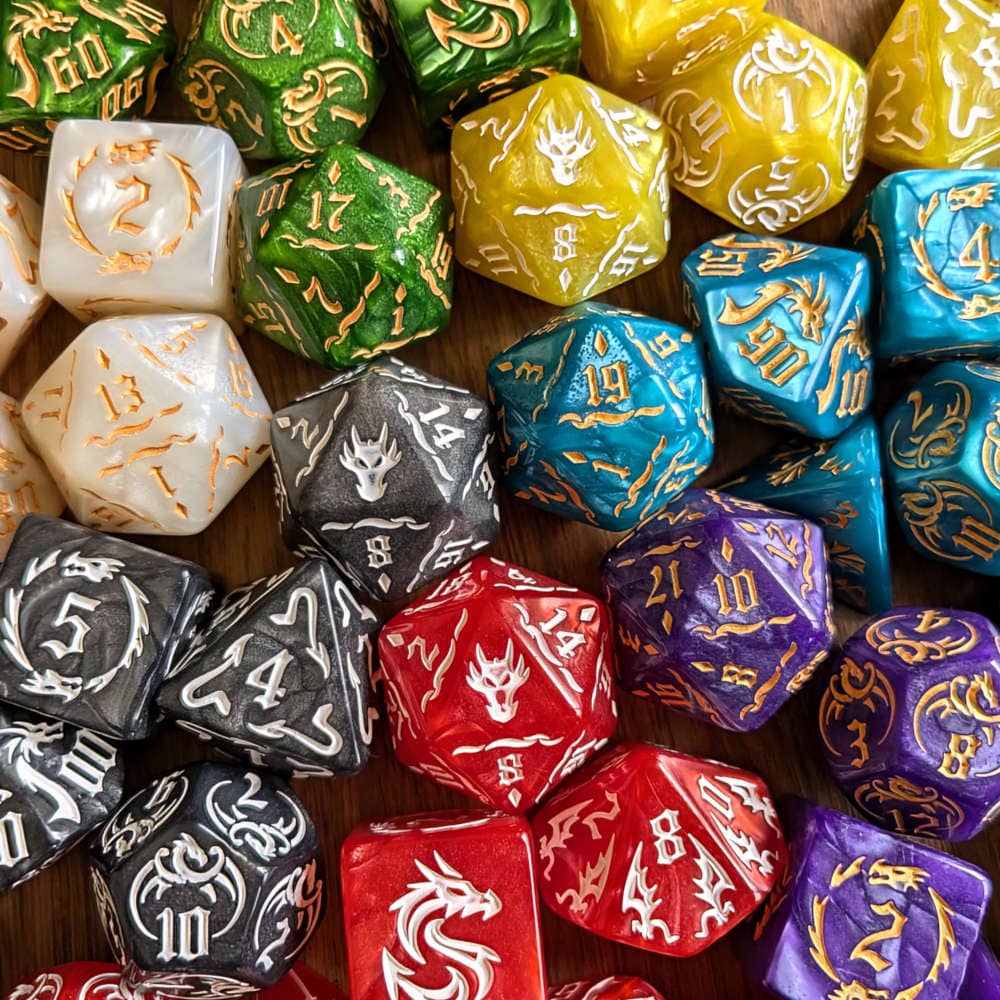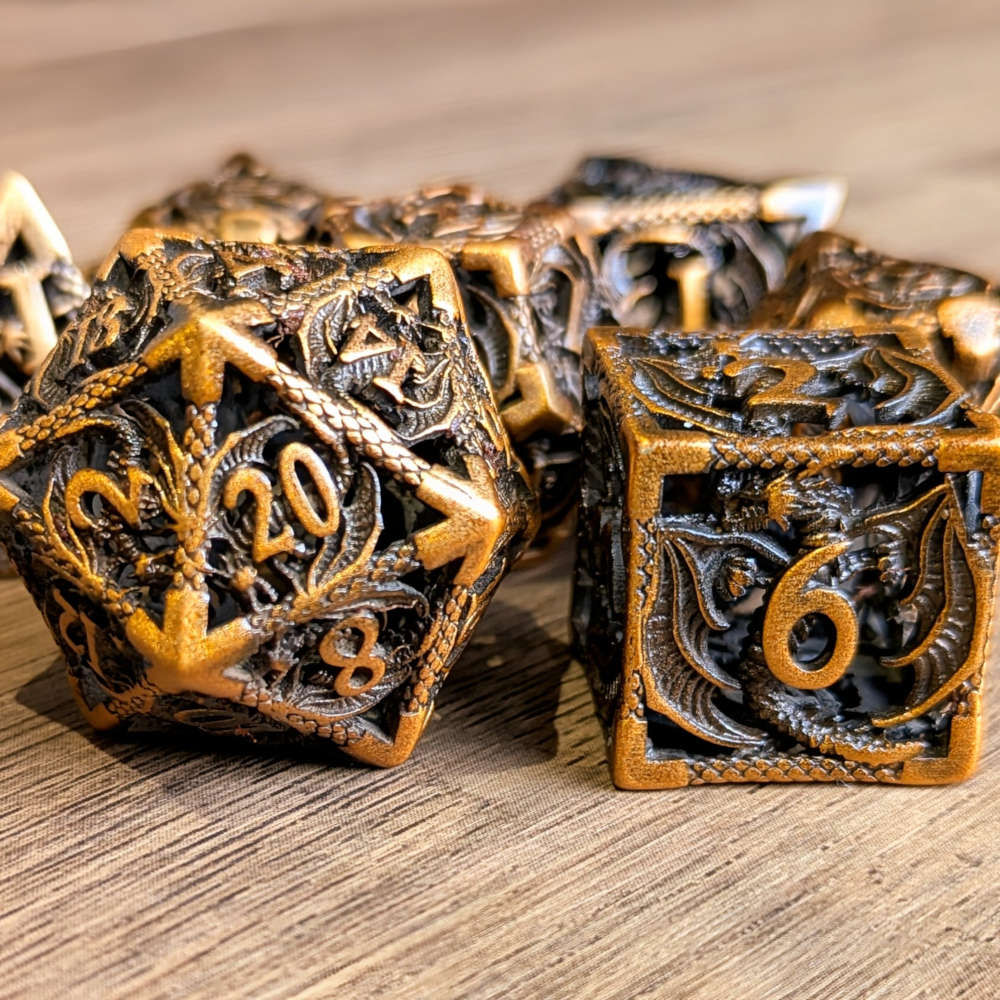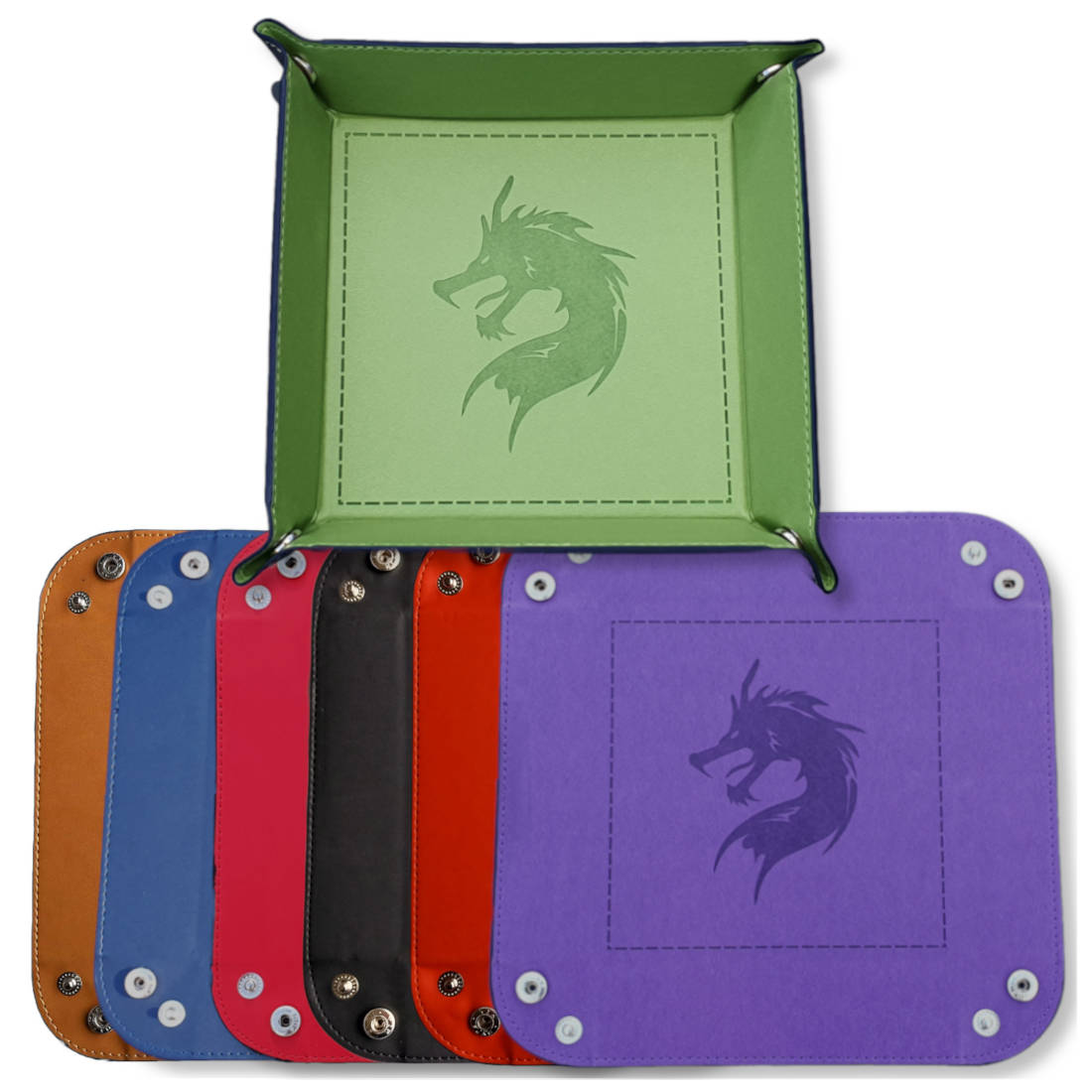How old do you have to be to play DND?

Amidst the realms of Dungeons & Dragons, where epic quests and heroic battles unfold, the question of age often arises. While this captivating tabletop roleplaying game has garnered a diverse and dedicated player base, many wonder: how old do you have to be to play D&D?
As we delve into this topic, we'll uncover the considerations surrounding the age at which one can join the ranks of dungeon delvers and dragon slayers.
How old do you have to be to play DND?
You can start playing Dungeons & Dragons with adult help as early as 5 or 6 years old. The famous roleplaying game offers a myriad of benefits that go beyond mere entertainment.
Some of the benefits of playing D&D include:
- Strengthening creative thinking and problem-solving skills
- Promoting interpersonal communication abilities
- Developing the ability to imagine and explore fantastical worlds
However, the question of the ideal age to dive into the world of D&D doesn't have a one-size-fits-all answer. There are no specific age requirements outlined in the official D&D rules or the D&D Adventurers League.
As John Woodworth, an experienced Game Master since 1979, aptly puts it, someone is old enough to play Dungeons & Dragons "as soon as they’re old enough to focus for more than 10 minutes and can grasp the story that’s being told."
In essence, the suitability of playing D&D depends on the individual person’s maturity, comprehension level, and ability to engage with storytelling and gameplay mechanics. It's important to acknowledge that everyone's developmental pace is unique, so the readiness to embark on D&D adventures varies from person to person.
We’ve written a guide that explains how to play DND as a neurodivergent person, including tips for tweaking the game to be more inclusive.
What is the best age to start playing D&D?
The ideal age to begin playing Dungeons & Dragons varies based on individual factors and developmental readiness. If you're thinking of introducing your child to the world of D&D, there are several indicators that can help you gauge their suitability for the game.
Consider whether your child possesses some foundational skills that are important for playing D&D. These skills include being capable of performing basic math operations and maintaining focus for extended periods without getting easily bored.
Here are some key indicators to help you assess if your child is ready to embark on D&D adventures:
- Understanding and following a simple story: your child should be able to comprehend and engage with basic storytelling elements, as D&D heavily relies on narratives to create an immersive experience.
- Can communicate their intentions effectively: D&D involves collaboration and interaction with other players, even if you want to play DND with two players. Your child should be able to express their thoughts, ideas, and intentions clearly.
- Basic interpersonal skills: an essential aspect of D&D is teamwork and social interaction. Ensure your child is comfortable playing with others and can manage social dynamics.
- Able to roll dice: tabletop games revolve around rolling various dice for different actions. Your child should be able to grasp the concept of rolling dice and interpreting the results, ideally without the dice rolling off the table. If you’re not sure, check out our guide that explains how D&D dice work.
- Capable of making choices: D&D often presents players with choices. Your child needs to be able to understand and interpret an array of options and decide.
- Focusing without getting distracted: game sessions can span several hours. Your child should demonstrate the ability to remain engaged and attentive during gameplay.
- Understanding basic mechanics: there are lots of different mechanics in D&D, so the ability to read and interpret rules and mechanics is a necessity.
- Ability to manage setbacks: D&D involves wins and losses. Make sure your child can handle losing gracefully.
- Taking turns: playing D&D involves taking turns, waiting for others, and being patient.
Ultimately, the decision to introduce your child to D&D should be based on their individual developmental stage and interests. If they meet most of these criteria and display a genuine curiosity about the game, it might be the right time to embark on a magical journey together.
Is D&D appropriate for kids?
Yes, Dungeons & Dragons can be a fantastic game for kids, fostering creativity, teamwork, and imaginative play. If you're wondering whether your child would thrive in a D&D group, there are certain signs to look out for that suggest they might be a perfect fit:
- Love for fantasy worlds: If your child has a fascination with enchanting realms like those found in Harry Potter, Lord of the Rings, or Star Wars, they'll likely be captivated by the fantastical universe of D&D. Or, if they have a particular interest in dragons, then they can have that outlet in D&D by playing as a dragon or having a dragon as a pet.
- Theatre enthusiast: kids who enjoy acting, performing, and embodying different characters might find D&D to be an ideal outlet for their theatrical talents.
- Desire to make friends: for shy children seeking new friends but struggling with reaching out, D&D provides a structured environment for social interaction and bonding.
- Imaginative play skills: if your child has always demonstrated a knack for imaginative and pretend play, they're likely to flourish in the imaginative landscape of D&D.
- Interest in teamwork: D&D inherently requires teamwork, verbal communication, and turn-taking, making it an engaging way for your child to develop essential social skills.
However, it's important to remember that certain aspects of D&D might not be suitable for children. Many official adventure books contain dark and violent themes that aren’t suitable for younger audiences. If you're planning to use a pre-written adventure, read through the content in advance to ensure it is appropriate for your child.
You might explore a tabletop role-playing game (TTRPG) system specifically designed for children. These systems often feature age-appropriate themes, mechanics, and content, making them a safer and more enjoyable choice for younger players:
- Hero Kids: an award-winning fantasy RPG for kids aged from 4-10 years old, it comes with a streamlined rules set and a 20-page introductory adventure.
- No Thank You, Evil!: a tabletop game for kids as young as 5 years old, where their options are limited only by their creativity.
For a more in-depth list of child-friendly RPGs, check out this list of kids’ RPGs.
Alternatively, you could try simplifying the rules of D&D 5e or running a 5e adventure specifically written for children, such as An Ogre and His Cake which is a single-session module built for and tested by kids. You could also try a DND pre-written adventure.
Ultimately, D&D can be a rewarding and enriching experience for kids, provided you tailor the content and approach to match their age, interests, and comfort level.
Am I too old to start playing D&D?
Adults can enjoy D&D too! D&D is designed to be enjoyed by people of all ages, especially adults. The game’s intricate storytelling, strategy, and imagination-driven gameplay make it a fantastic hobby.
Here are a few reasons why D&D can be a rewarding experience for adults:
- Social interaction: as an adult, making new friends and socialising can be a challenge. D&D offers a judgment-free environment to connect with like-minded people.
- Explore your imagination: just because you’re older doesn’t mean you’ve outgrown your imagination. D&D provides a creative outlet that allows you to explore worlds of fantasy and adventure.
- A break from the daily routine: D&D offers a refreshing break from the mundane, allowing you to step into the shoes of a character in a fantastical world and engage in epic quests.
- Complex storylines and themes: while D&D can be enjoyed by people of all ages, adults can delve into more complex storylines and themes that add depth and intrigue to the game. This might involve darker, more mature topics, or crafting intricate narratives that challenge your creativity.
In the realm of Dungeons & Dragons, age is merely a number, and the real magic lies in the stories you weave and the connections you make. Whether you're introducing your child to the wonders of fantasy worlds or stepping into the shoes of a legendary hero as an adult, D&D offers a captivating journey regardless of your age.
If you're intrigued by the world of D&D and ready to dive into the adventure, why not enhance your experience with our wide range of D&D dice sets and tabletop accessories?





